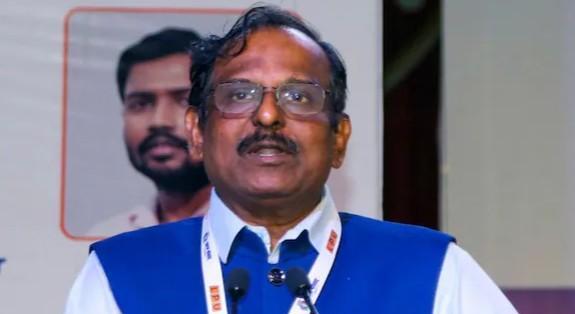
10 Satellites Working to Ensure Citizens’ Safety: ISRO
As tensions between India and Pakistan continue to simmer, the Indian Space Research Organisation (ISRO) has been working tirelessly to ensure the safety and security of Indian citizens. According to ISRO chairman V Narayanan, the organization has 10 satellites continuously working around the clock to monitor and protect the country’s borders.
In an interview with a leading news channel, Narayanan highlighted the importance of satellite technology in ensuring national security. “We have to monitor our 7,000 km seashore areas. Without satellite and drone technology, we can’t achieve many things,” he said. The ISRO chief emphasized that the organization’s satellites play a crucial role in providing real-time data to the government, which enables them to take informed decisions.
To further bolster its surveillance capabilities, ISRO is scheduled to launch another surveillance satellite on May 18. The new satellite will join the existing fleet of 10 satellites that are already working to monitor the country’s borders, coastlines, and critical infrastructure.
The use of satellites in national security is not a new concept. In fact, satellite technology has been used by various countries around the world to monitor their borders, track enemy movements, and gather intelligence. In the context of India, satellite technology has been used to monitor the Pakistan border, the Line of Control (LoC), and the Line of Actual Control (LAC) with China.
ISRO’s satellite-based surveillance system uses a combination of optical and radar imaging technologies to gather data on ground movements, infrastructure development, and other activities that could impact national security. The data collected by the satellites is then analyzed by experts to identify potential threats and provide situational awareness to the government.
One of the key advantages of satellite technology is its ability to provide real-time data, which enables the government to respond quickly to emerging threats. For instance, if a satellite detects unusual activity on the Pakistan border, the government can quickly dispatch troops to the area to prevent any potential attacks.
In addition to its surveillance capabilities, ISRO’s satellites also play a critical role in providing critical infrastructure support services such as communication, navigation, and weather forecasting. The organization’s satellites are used to provide communication services to remote and rural areas, as well as to support navigation systems such as GPS and GLONASS.
ISRO’s efforts to enhance national security through satellite technology are not limited to surveillance and communication. The organization is also working on developing satellite-based systems for disaster management, search and rescue operations, and environmental monitoring.
In conclusion, ISRO’s 10 satellites are working tirelessly to ensure the safety and security of Indian citizens. The organization’s satellite-based surveillance system provides real-time data to the government, enabling them to take informed decisions and respond quickly to emerging threats. As tensions between India and Pakistan continue to simmer, ISRO’s satellites will play a critical role in ensuring national security and protecting the country’s borders.






